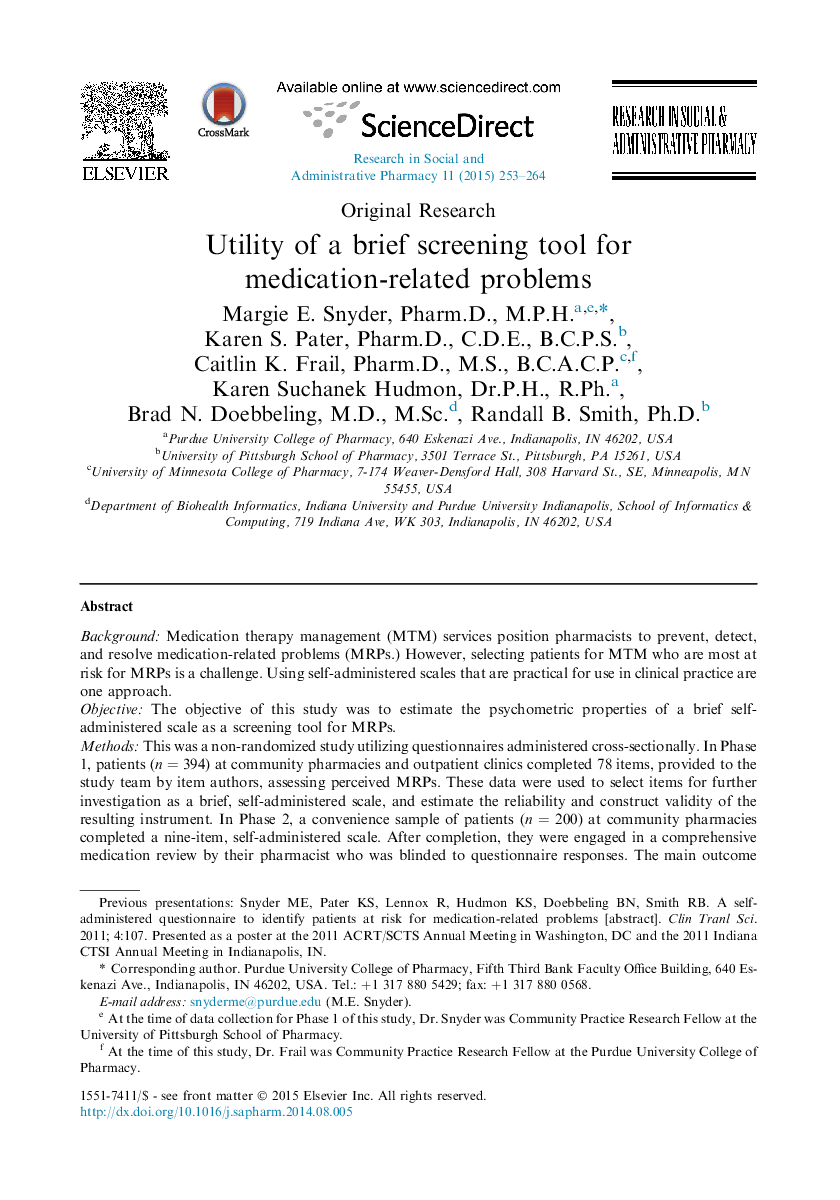| Article ID | Journal | Published Year | Pages | File Type |
|---|---|---|---|---|
| 5821507 | Research in Social and Administrative Pharmacy | 2015 | 12 Pages |
BackgroundMedication therapy management (MTM) services position pharmacists to prevent, detect, and resolve medication-related problems (MRPs.) However, selecting patients for MTM who are most at risk for MRPs is a challenge. Using self-administered scales that are practical for use in clinical practice are one approach.ObjectiveThe objective of this study was to estimate the psychometric properties of a brief self-administered scale as a screening tool for MRPs.MethodsThis was a non-randomized study utilizing questionnaires administered cross-sectionally. In Phase 1, patients (n = 394) at community pharmacies and outpatient clinics completed 78 items, provided to the study team by item authors, assessing perceived MRPs. These data were used to select items for further investigation as a brief, self-administered scale, and estimate the reliability and construct validity of the resulting instrument. In Phase 2, a convenience sample of patients (n = 200) at community pharmacies completed a nine-item, self-administered scale. After completion, they were engaged in a comprehensive medication review by their pharmacist who was blinded to questionnaire responses. The main outcome measure for estimating the criterion-related validity of the scale was the number of pharmacist-identified medication-related problems (MRPs.) Item statistics were computed as well as bivariate associations between scale scores and other variables with MRPs. A multivariate model was constructed to examine the influence of scale scores on MRPs after controlling for other significant variables.ResultsHigher scores on the questionnaire were positively correlated with more pharmacist-identified MRPs (r = 0.24; P = 0.001) and scores remained as a significant predictor (P = 0.031) when controlling for other relevant variables in a multivariate regression model (R2 = 0.21; P < 0.001).ConclusionsPatient responses on the scale may have a modest role in predicting MRPs. The use of self-administered questionnaires such as this may supplement other available patient data in developing patient eligibility criteria for MTM, however, additional research is warranted.
